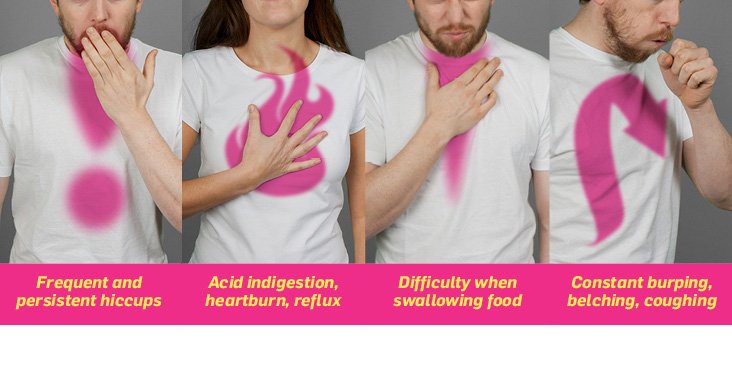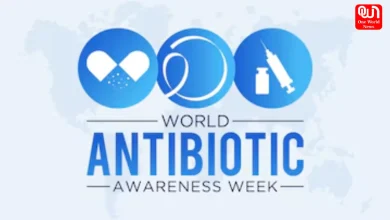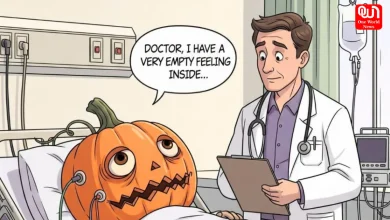12 Cancer Symptoms that people usually ignore

Red-alert Health Symptoms that you should not ignore
When it comes to aches, pains, and other health problems, we don’t take them seriously. The best way to detect cancer on the initial stage is to take few health signs seriously. Tests and screening are the best way to find out about cancer but what about the people who are too young for the screening? Here is how you can take precautions against cancer.

Cancer may show general symptoms like fever, extreme tiredness, or weight loss. This can be due to cancer cells use much of the body’s energy supply, or they may release substances that change the way the body makes energy from food. Cancer can also cause the immune system to react in ways that produce these signs and symptoms. General symptoms can also have other causes and are in fact, more likely to be caused by something that isn’t cancer. But you should never take them lightly.
Here are some red-alert signs and what they might mean for your health:-
- Weight loss without trying: Shedding pounds when you’re not eating less or exercising more could point to colon or liver cancer due to a phenomenon called cachexia. Losing 10-12 pounds or more that isn’t on purpose may be a sign of cancer. This happens most often with cancers of the pancreas, stomach, esophagus or lungs.
- Fever: Sometimes cancer can affect the immune system, making it harder for the body to fight infection that causes fever. It can also be an early sign of leukemia or lymphoma.
Fatigue: Extreme tiredness that doesn’t get better with rest may be a symptom of several different cancer types including leukemia, colon cancer, or stomach cancer.

- Unexpected or Unexplained Pain: In most cases, you can pinpoint a reason your back or chest might ache, If it lingers for 3 months or longer, it’s time to schedule an appointment. Bone cancer or testicular cancer can cause pain. A headache that doesn’t go away or get a relief with treatment could be a cause or symptom of a brain tumor. Back pain could be a symptom of cancer of the colon or ovary.
- Skin changes: Any wart, mole, or freckle that changes color, size, or shape, or that loses its sharp border should be checked for melanoma or other types of skin cancer. Other skin changes that can be symptoms of cancer include darker looking skin, yellowish skin and eyes (jaundice), reddened skin, itching, or excessive hair growth.
- New change in bowel habits: Colon cancer can cause long-term constipation, diarrhea, rectal cancer or a change in the way your poop looks. Pain when passing urine, blood in the urine, or a change such as needing to go more or less often than usual could be related to bladder or prostate cancer.
- Sores that doesn’t get heal: Long-lasting sores in your mouth could be lead to oral cancer, especially the people who smoke, chew tobacco, or often drink alcohol, drink or have HPV—all factors that raise your risk. Sores on the genital area may either be signs of infection or an early cancer.
- White spots in the mouth: White patches inside the mouth and white spots on the tongue may be leukoplakia. Leukoplakia is a pre-cancerous area that’s caused by frequent irritation. It’s often caused by smoking or other tobacco use and can become mouth cancer if not treated.
- Unexplained bleeding: Blood in your phlegm may relate to lung cancer, while spotting it in the toilet could signal kidney, bladder or colon cancer. And a skin tag that bleeds could be skin cancer. Coughing up blood may be a sign of lung cancer. Abnormal vaginal bleeding may be a sign of cervical or endometrial cancer. Blood in the urine may be a sign of bladder or kidney cancer. A bloody discharge from nipple may be a sign of breast cancer.

- Lump: This type of cancer occurs mostly in the breast, testicle, lymph nodes (glands), and the soft tissues of the body. Sometimes you have felt the lymph nodes in your neck swell when you have a cold. Many cancers can be felt through the skin. Some breast cancers show up as red or thickened skin rather than a lump.
- Trouble swallowing: If you are unable to gulp, it may be the signal of head and neck cancer—a tumor may be blocking your throat. Problems that don’t go away may be signs of cancer of the esophagus, stomach, or throat. As per oral cancer, smoking, drinking, and HPV can all increase your risk. Though these diseases aren’t common in young men.
- Nagging cough or hoarseness: A cough that does not go away may be a sign of lung cancer, especially if you’re a heavy smoker. Hoarseness can be a sign of cancer of the voice box (larynx) or thyroid gland. Malignancies can directly affect your voice box or damage the nerves that control it, paralyzing your vocal cords.
Having these symptoms does not mean you have cancer, or you’re even likely to have cancer. But if you have one, or if you notice any other big changes in the way your body works meet a doctor soon. This is true that if a symptom lasts for long time or gets worse, it has nothing to do with cancer, but the doctor can find out more about you and your body that what’s going on and, if needed, will treat it.
Have a news story, an interesting write-up or simply a suggestion? Write to us at
info@oneworldnews.in







